i get paid to be a judgmental bitch on the internet.
my work is the literal embodiment of a record scratch; i am a professional party pooper, that one friend who will absolutely make everyone at the dinner table uncomfortable by asking a fellow guest to specify what exactly they disliked about crazy rich asians because i know the romantic comedy to be political work indicative of the anxieties, assumptions and desires of the specific times and agencies making them (word to media critic tamar jeffers mcdonald).
so: what anxieties about being replaced as the desirable male lead did the film bring to the surface for you, white boy?
best believe i’m letting our stanley tucci inspired pasta aglio, olio e peperoncino go cold if i find your answers lacking. i know it doesn’t seem like it, but there is an artistry to what us critics do. there are ethical parameters we must function within, basic principles we must follow in order to separate our opinions from those of the average tweeter. in short: we earn the right to be haters. i am eager to see more of us (women, non-white writers, migrants, muslims, daniel kaluuya stans) get to partake in the professional savagery i call a career and add something varied to the often boringly whitewashed commentators the powers that be insist on handing bylines to.
if i were to start over as a critic, these are the things i would want to be told and taught about this work. i hope it is a useful guide that familiarizes you with the basic requirements of criticism. may it empower you to be a discerning consumer and writer.
be a nerd: i touched on this in my ‘in defense of pretension’ essay, but we are in the midst of a curiosity crisis. how are you going to write a piece for a magazine about a show if you don’t know how it was filmed or who wrote it? this feels like the bare minimum but you’d be surprised by how many writers simply do not bother to know anything beyond their own perception of the work. read other interviews the cast have given and see if they illuminate something for you. does the director mention a film he watched as he worked on the project? watch that too.
work your way through the film festival line-ups of previous years and see what catches your eye. do what we did as children and pick out a random book at the library, a title you haven’t seen before by an author whose name you don’t recognize, and let yourself be whisked away. pick up a a magazine on a form you are unfamiliar with; a biannual guide to interior design or a weekly paper on architecture. consume all the art you can and watch as your pool of references and knowledge grows, introducing you to movements you knew nothing of. you’d be surprised to see just how many connections you are able to make when you know a little bit about everything.
zoom out: most people are capable (to some extent atleast) of articulating how a piece of art makes them feel. it is our job to contextualize that feeling and ground it. a few questions that always help me get contextual: why is this film in particular significant? what other bodies of work is it in conversation with? how did this thing come to be in the first place? dig into the artist’s process and figure out why it was made the way it was. does this body of work take away from or add something new to the bigger conversations we are having? take a look at the artist’s creative history: does this latest offering deviate thematically? do we learn something new about them? on the contrary, is there a recurring theme present in their work and if so why are they preoccupied with this question creatively or politically? nothing exists in a vacuum (i am barely containing the urge to make a coconut tree reference here; forgive me).
the devil’s in the details: this feels contradictory to my last point, but stay with me. if you are not rooting your assessment of a thing in concrete text (text refers here to whatever medium of work you are engaging with) and pulling from it, you are doing something wrong. quote the work, pull it apart. if a line strikes you as odd or captures your attention no matter how insignificant it feels, latch onto it and note it; your brain as flagged it for some reason. trust that intuition of yours. see if there are other, less obvious moments that also raise interesting questions for you.
taste it again: some work will illicit an immediate reaction from you: that reaction will not always be critically accurate or fair. food critics will often visit restaurant thrice before they make their judgement; i function the same way now. i’ll do an ‘honest’ first watch or read, notebook and pen on the other side of the room where i let the story swallow me up. the second visit is technically my first critical watch or listen: this time, i note everything down. i’ll write a skeleton draft immediately and leave it alone, even if it’s just for the rest of the day. when a little time has passed, i revisit the work and see if my observations still ring true. i cannot tell you how many times i’ve had to alter a draft after a re-watch; sometimes all it takes is a second try when you aren’t distracted by your phone or in a foul mood post workout. ask questions of the work: tilt it around and see if you spot the same blemishes. if you do, put it in the piece. it stuck out for a reason.
stay out of the discourse: i am tired of reading pieces that feel like an amalgamation of the writer’s for you page and twitter timeline. when i know that i’m going to review something, i try to avoid any discussions of it online until i’ve handed my piece in. i’ll also avoid reading what other critics are saying if i haven’t yet formulated a clear take; it becomes harder to discern what qualms belong to me and which ones i have inherited from other people if internalize everyone else’s judgement of it. i think it’s useful to know what the culture is saying (part of our jobs is placing a work in a moment explicitly) but do not obsess over it while you write. what do you think? it’s impossible to find a new ‘angle’ no one would have thought of but you can get closer to clarity the better you drown out all the other noise.
your opinion isn’t everything: being a critic sometimes feels like having a split personality; i am constantly viewing things with two hearts. there is me, the culture fiend and willing audience member, earnest and eager to love everything she interacts with. that ayan will gladly sit through a rewatch of saltburn because jacob elordi is quite yummy when he has a posh british accent and an eyebrow piercing, gappy grin on full display under some bisexual lighting. the other part of me wants to strangle emerald fennell with her headscarf for subjecting us all to her morally flaccid take on the english class caste system and write several thousand words on why we should stop letting rich people make films until they decide to start saying something interesting for once. learn to separate your personal opinion from your critical one. accepting that these can sometimes exist in contradiction to one another will make you feel saner, i promise.
read other critics’ works: follow them on social media, stalk their bylines, read their essays and see if you can spot their ‘voice’. i’m working on a whole separate piece on some of my favorite critics but a few i’d recommend are gabriella karefa johnson (fashion), ryan yip (fashion), inkoo kang (literature), andrea long chu (literature) and roxanne gay (culture).
say the uncomfortable thing: everyone is too sensitive, and not in the ‘death to wokeism’ way (think of the biggest bitch you know; it’s a conservative, isn’t it?) but in a ‘everyone wants to conflate criticism with hate’ sort of way. i could write a whole separate piece on how digital fandom has made critics targets but you should know that the only thing you should be loyal to is the work. if you have written something in good faith and it upsets some people, so be it. in fact: revel in that vitriol (there are certain fandoms where i would actually say it is an honor to be despised: the swifties, bridgerton stans AND drake’s ovo dickriders have all called me slurs at some point or another. i went to sleep on those nights with my shoulders up to my ears and a smug grin on my face a la anthony mackie). you had a spine when it would have been easier not to.
courting favor by swallowing your honest assessment might feel good in the moment (especially when it helps you avoid a hate train) but those little indignities add up. it is your name that will be published under that essay. will you be able to stomach reading it back in ten years time if all you cared to say was the ‘right’ thing? even when i read a review i disagree with, if i can see that the critic has stuck to their guns and asked a difficult question of something beloved not for the sake of being a contrarian but because something in their spirit protests to it, i can never bring myself to dislike the piece or dismiss it.
protect your writing: i alluded to this above but you really should be able to look at something you’ve written and defend it’s honor. if you can’t, you’ve fucked up. i find it amusing that the same artists who have gone out of their way to shit on criticism as a form love to post our reviews of their albums on their stories when we say nice things about them (and yes, this is charli xcx shade).
to them, the critic is outdated as a cultural force, irrelevant to the musician and audience except for when we write lovely things that stroke their egos. sometime it will be necessary that you defend your position on a piece to your editor; do it and do it well. know when to say no to an edit. know when to push back. going back and forth with an artist on social media isn’t a good look but it’s still better than letting them try to intimidate you. making an editor have to explicitly tell you why they want something changed might make for an uncomfortable conversation (especially for us former people pleasers) but it’s better than seeing your view watered down and made ‘palatable’.
no one is above critique. that includes you: wanting us to be empowered to write freely and safely about art does not mean i think we should be immune to criticism too. sometimes, we get it wrong. take the lashings on the chin: don’t do what lena wilson did after amandla steinberg (rightly) called her out for dubbing their film bodies bodies bodies ‘a 95-minute advertisement for cleavage’ and crashout via tiktok in horrifying fashion because you live in a bubble of your own delusion. we are people; there will be lines of ours that land flat, criticism that veers perhaps into cruelty or dehumanization. just as our words encourage growth and discernment in the artists we are in conversation with, there will be lessons we will need to learn from them too.
put down the AI: put the chatgpt down. use a search engine and DO NOT rely on that first AI summary that pops up. read an article written by an actual person for your research. talk to a fellow critic. listen to the author or artist talk about their work. watch fucking youtube videos to help you contextualize something. the bar is in literal hell; i am begging you all to use your brains and not contribute to the active destruction of our planet and the theft of our work because you can’t be bothered to think of an opening paragraph for your review. the fact that i even have to include this is making me want to throw myself off the tallest building i can find but we seem to have many people on this platform- a platform (supposedly) built for writers- who are eager to defend the use of AI as it pertains to our work specifically.
i do not care if i ruffle some feathers or offend you. art is the exploration of our personhood. the process is just as important as the finished work- sometimes even more so. what does a machine know about effort? what does a computer know about trauma and pain and history? any resemblance they bare to us humans they were taught through the theft of our art. in my eyes, it’s quite simple: if you did not write it yourself, you are not a writer. if you did not dream it up yourself, you are not a writer. if you disagree, feel free to fuck off to a different corner of the internet where they like people who have given up on themselves intellectually. send me as many aggressive emails as you’d like to defend your position and shame me for mine; i am not interested. this lady will not budge. soz.
it doesn’t have to be about you: i wish there were a way to gatekeep the work of black artists from the eyes of the white critic seeking to contort and misrepresent them. sinners was a recent example; they just can’t help themselves. something in their spirit must undermine work that does not feature them in prominence. it’s like if the lead isn’t white, the story holds no further merit. contrary to the practice and belief common in our line of work, europe and america are not the center of the world. whiteness might be your default but it is not ours.
discrediting a work merely because you cannot project yourself onto it means you’re shit at your job. if you have blind spots culturally and can’t be bothered to fill them for yourself, step aside and let someone of that people speak to the work and lead the discussion. i don’t want to read what a white writer has to say about ocean vuong’s latest book, i’m sorry. stick to the sally rooney hot takes.
thank you as ever for reading my loves. this is a little different from my typical pieces; i hope the change was helpful and not jarring.
until next time,
aa x


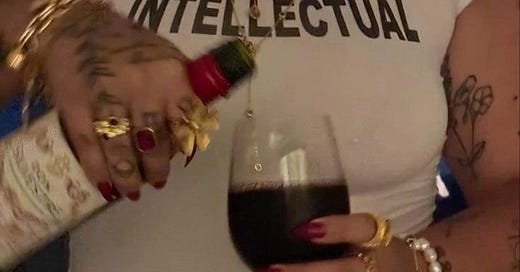



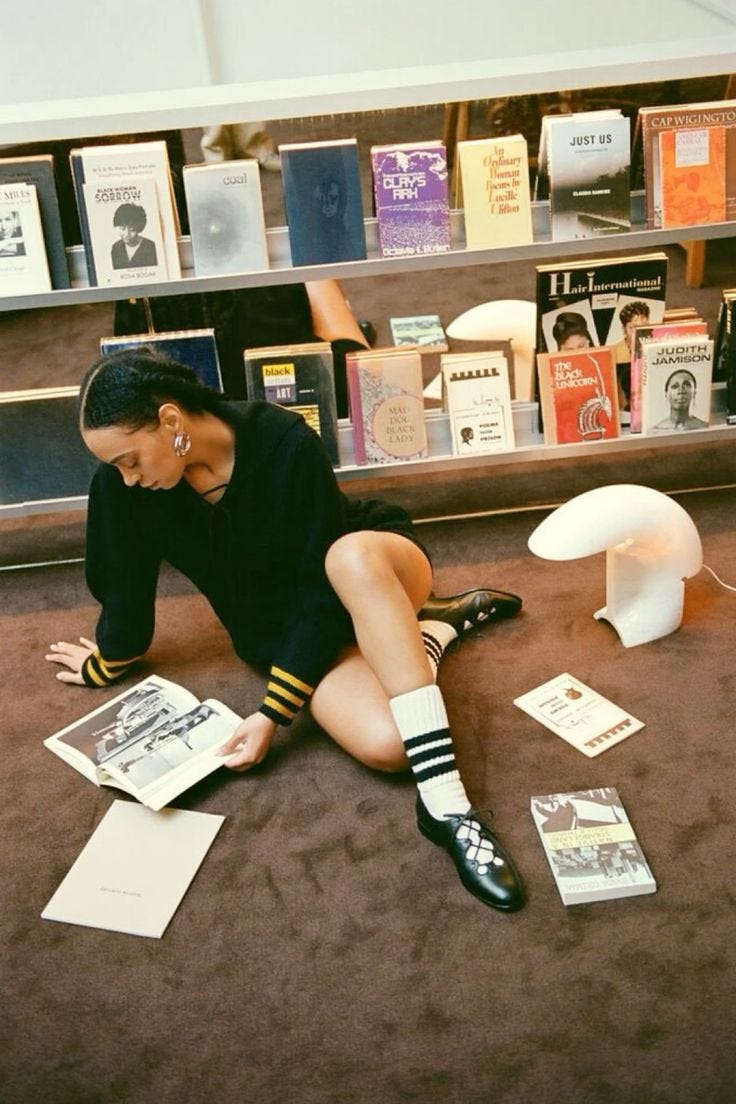
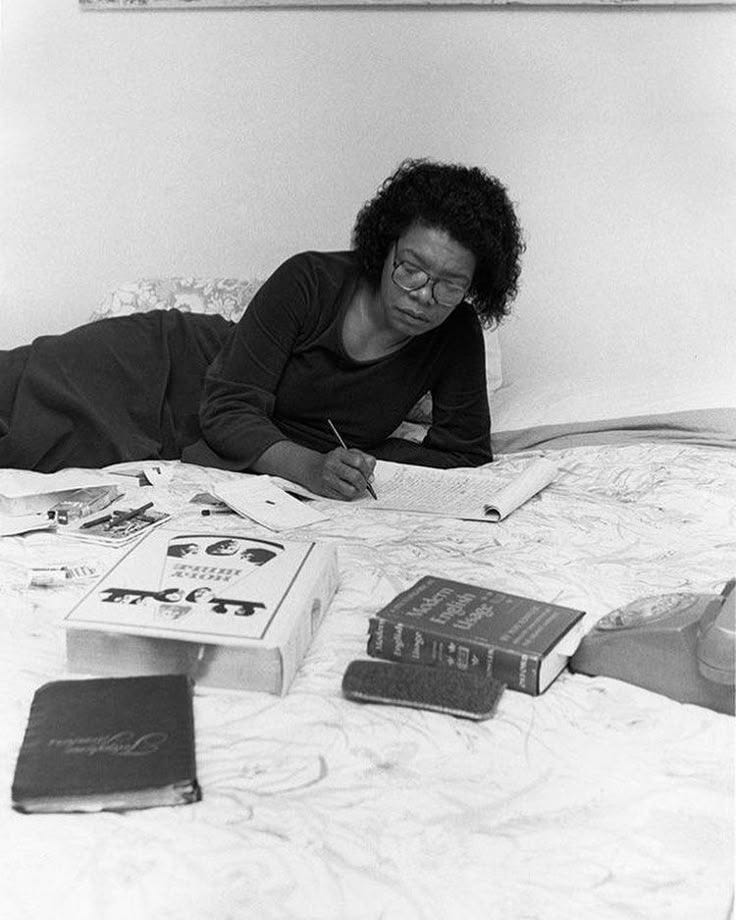

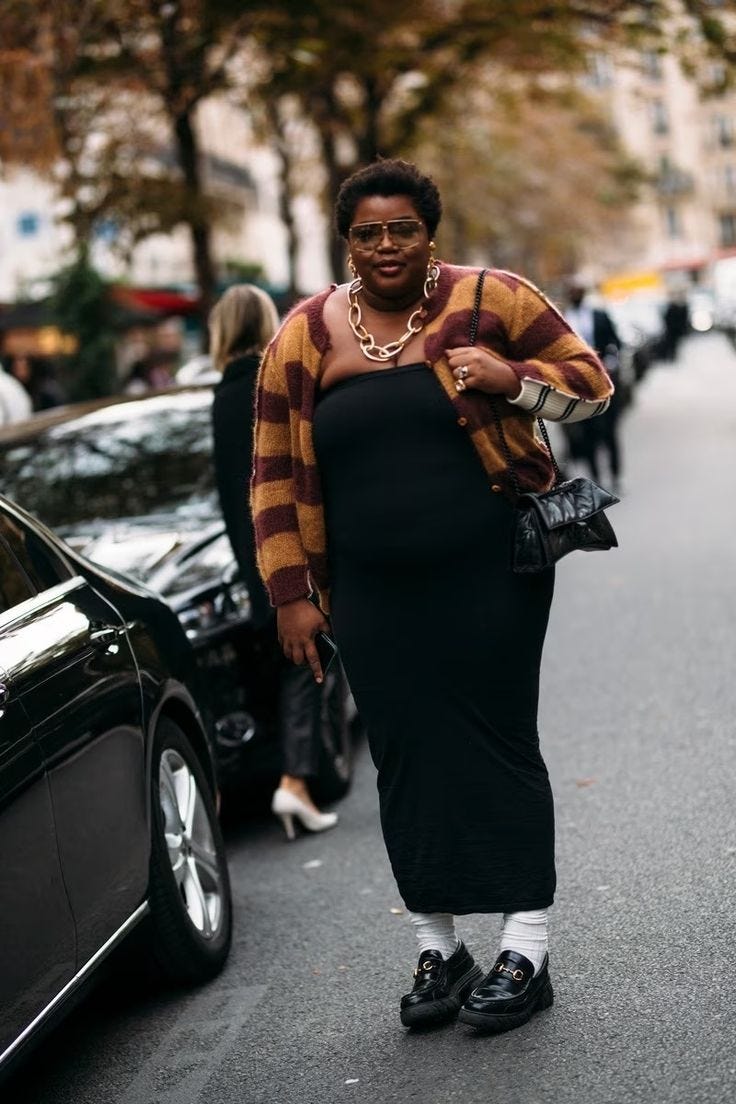
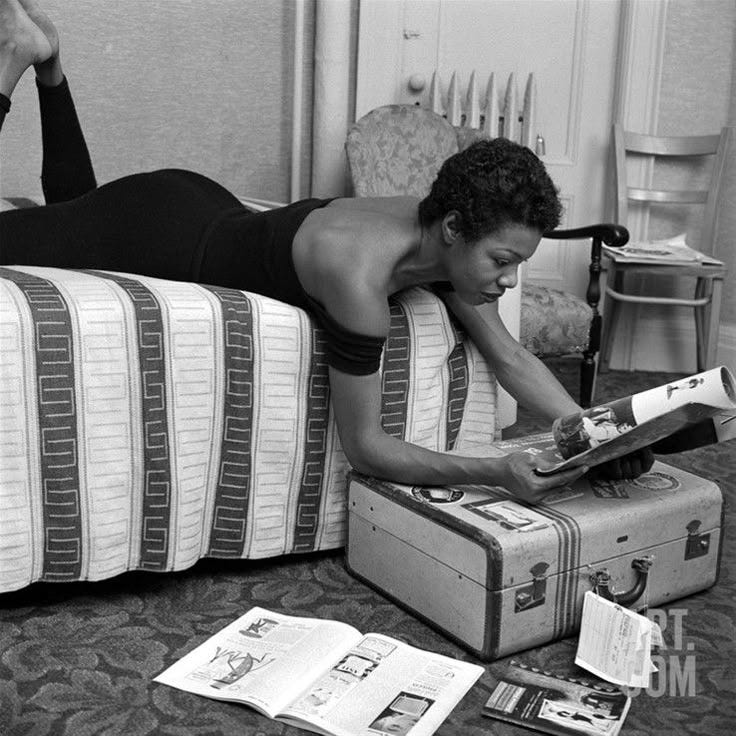


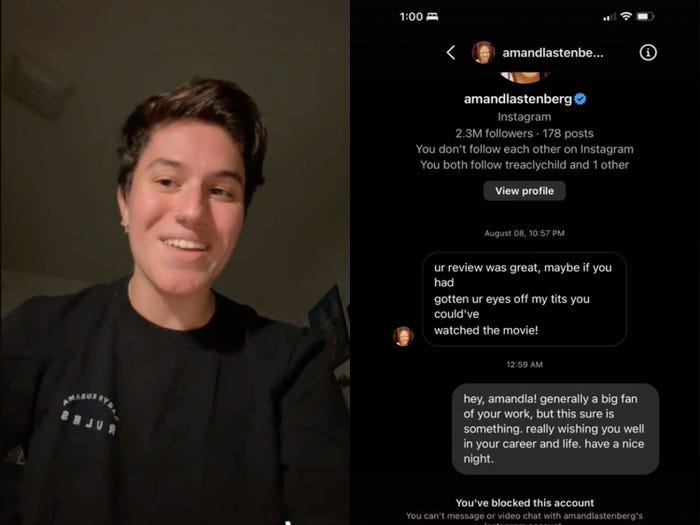

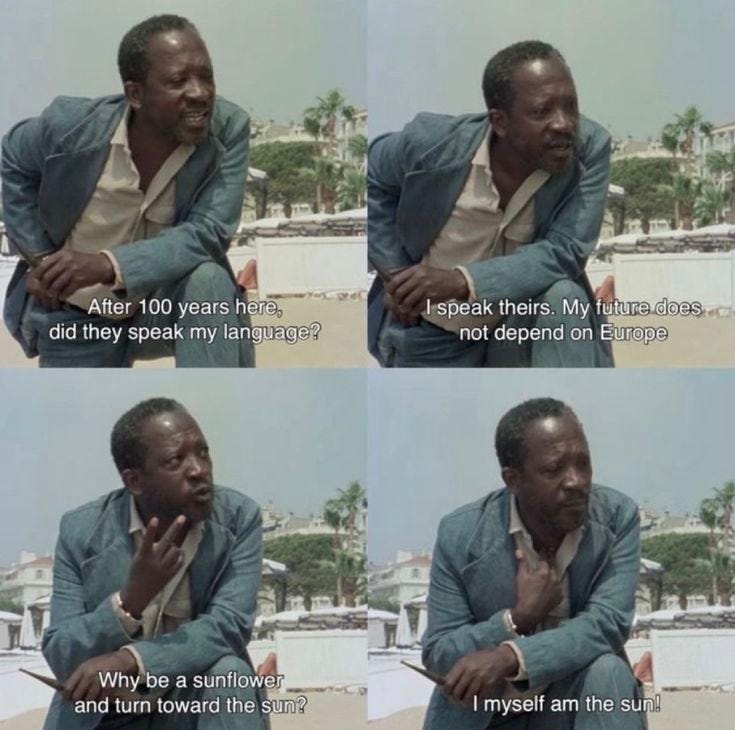
My favourite thing about reading your work is how unapologetic you are about your opinions and how they are always rooted in real cultural references or analysis, and even where I disagree with you I am still critically engaging, that in itself is why criticism cannot die
mic drop ass intro 🤝 mic drop ass conclusion. 10/10